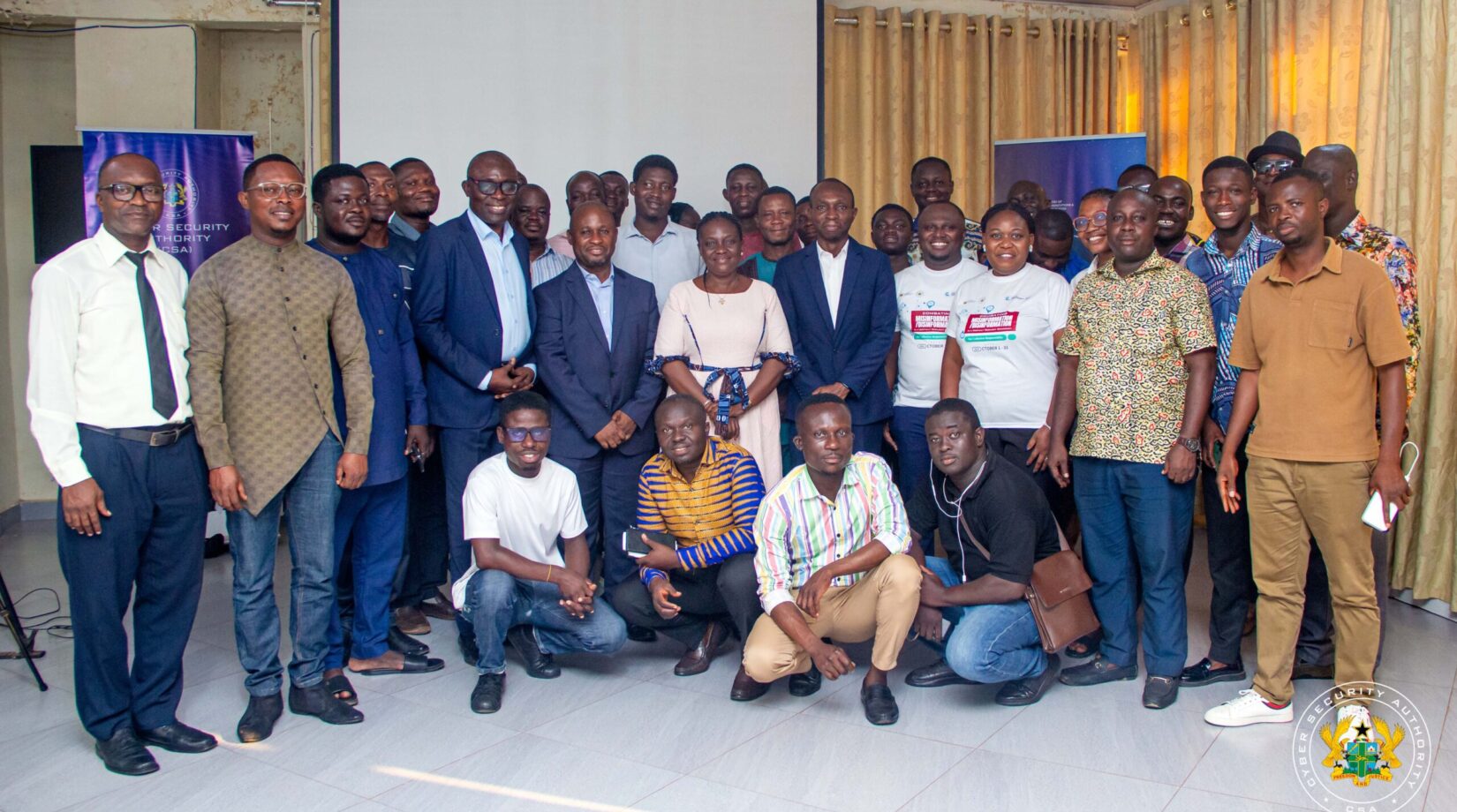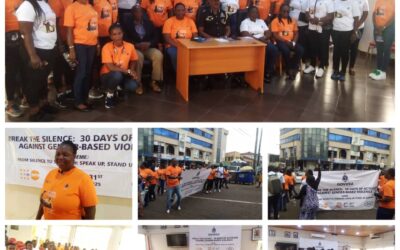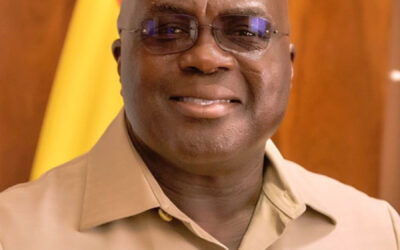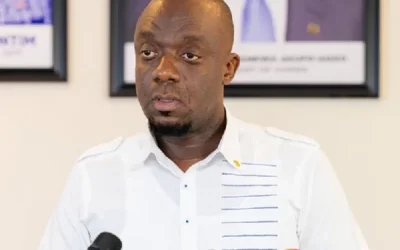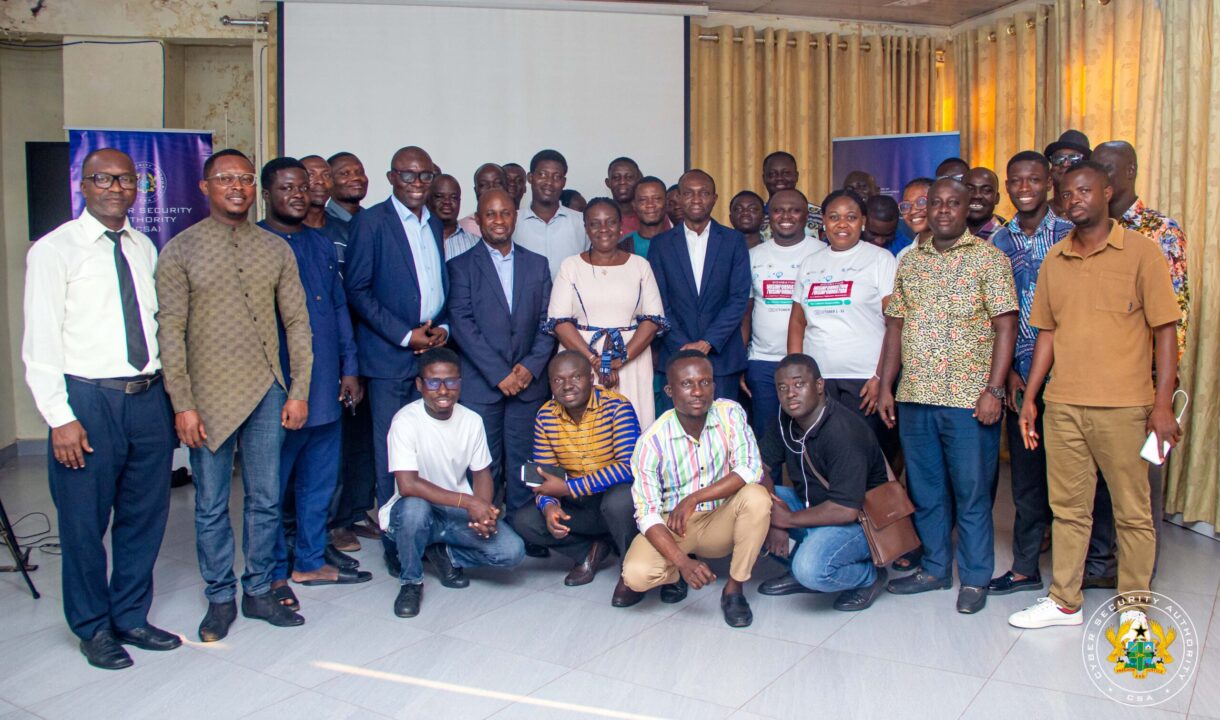By:Isaac Amoah
Ghana ranked 15th in daily time spent using social media globally as Cyber Security Authority (CSA) intensified awareness against misinformation and disinformation ahead of the 7th December 2024 general election.
A day’s forum was held in Kumasi, the Ashanti Regional capital, for media practitioners on Monday, 7th October 2024, as part of 2024 National Cyber Security Awareness Month, which was under the theme: “Combating Misinformation/Disinformation in a Digitally Resilient Democracy: Our Collective Responsibility”.

A section of participants at the forum
The one-day forum, which was held at Eye Clinic Conference Centre at the Komfo Anokye Teaching Hospital (KATH), was attended by editors, senior journalists and senior broadcast journalists in the Ashanti Region.
In a statement, Mr. Alexander Oppong, the Director of Awareness Creation and Capacity Building with the Cyber Security Authority (NCSA), said the emergence of cyber threats had escalated dramatically in recent years.

CSA officials,GJA executives in a group photograph with participants
According to statistics by Cybersecurity Ventures, global cybercrime costs are projected to hit $10.5 trillion annually by 2025, thereby affecting businesses and individuals alike.
Moreover, a staggering 60 per cent of small businesses that suffer a cyber attack go out of business within six months.
Mr. Oppong said the figures highlighted the urgency of the mission of CSA and the critical need for increased awareness and preparedness in the digital environment.
Mr. Oppong disclosed that as of January 2024, about 24.06 million Ghanaians were connected to the internet, with 7.60 million actively using social media.
According to him, Ghana currently ranks 15th globally in daily time spent on social media and while these advancements offer immense opportunities, they also introduce inherent risks.
He indicated that the digital age, with its vast opportunities for growth and development, also presents vulnerabilities that cyber criminals can exploit, potentially causing significant harm to individuals, businesses and nations.
“The rapid expansion of internet usage has led to increased exposure to risks and new avenues for criminal activities. In this context, misinformation and disinformation have emerged as critical threats. Misinformation, false or misleading information shared without malicious intent and disinformation deliberately falsified information intended to deceive, both pose substantial risks to democratic processes and societal stability,” he added.
He emphasised that as Ghana approaches a critical electoral period in December, it is essential for all stakeholders to actively work towards safeguarding the integrity of our information ecosystems.
He said the National Cyber Security Awareness Month instituted in October 2018 is significant to promote awareness of digital safety and best practices.
The month-long event is noted to have provided the public with information to empower them to protect personal and corporate data from cybercrime perpetrators in the face of the ever evolving global digital landscape.
Mr. Oppong said this year’s theme underscored the pressing need for collaboration in tackling the challenges the country faces in the digital landscape.
According to him, misinformation can undermine trust in institutions, disrupt communities and erode the very fabric of our democracy.
A study by the University of Oxford in 2024 revealed that social media platforms were used to spread misinformation and disinformation in 81 countries, with 70% of online misinformation being spread through just 10% of social media accounts.
A 2021 report by the Media Foundation for West Africa (MFWA) likewise highlighted that social media is a major source of misinformation and disinformation in Ghana, indicating the need for robust measures to mitigate the menace of mis/disinformation in Ghana’s digital space.
This media forum, he said, aims to address these worrying concerns by promoting cyber security awareness creation against misinformation and disinformation in collaboration with government officials, private sector players, business executives, cyber security professionals, educationists, representatives from civil society organisations and the media.
He reminded the journalists that their role as journalists is vital in this fight. “You (journalists) are the guardians of truth, the champions of integrity and your commitment to ethical journalism is indispensable in combating misinformation and disinformation. This partnership between the CSA and the GJA is a testament to our shared commitment to fostering a safer cyber environment. Together, we can empower individuals and organisations to recognise the importance of cyber security and the role they play in it,” he stressed.
Besides, Mr. Oppong seized the opportunity to express their sincere gratitude to executives of GJA for embracing the collaboration with the CSA, stressing that “your acceptance and enthusiasm in joining us on this vital journey is commendable and will undoubtedly amplify our efforts in promoting cyber security awareness. Let us remember that the fight against misinformation and the promotion of cyber security is a shared endeavour. Together, as journalists, cyber experts and concerned citizens, we can build a digitally resilient democracy that prioritises truth, safety and collective well-being.”
Mr. Isaac Socrates Mensah of CSA also made an insightful presentation on cyber security education.
Mr. Kofi Yeboah, the General Secretary of GJA, said misinformation and disinformation had become very critical, especially prior to the December polls.
He, therefore, called on the media to eschew misinformation and disinformation. Besides, he implored the media to take key interest in the cyber security awareness in order to help combat misinformation and disinformation.
Linda Asante Agyei, the Vice-President of GJA, in a closing remark, appealed to CSA to extend the awareness creation forum to journalists in the remaining 15 regions, so as to equip them to help combat cyber security.

